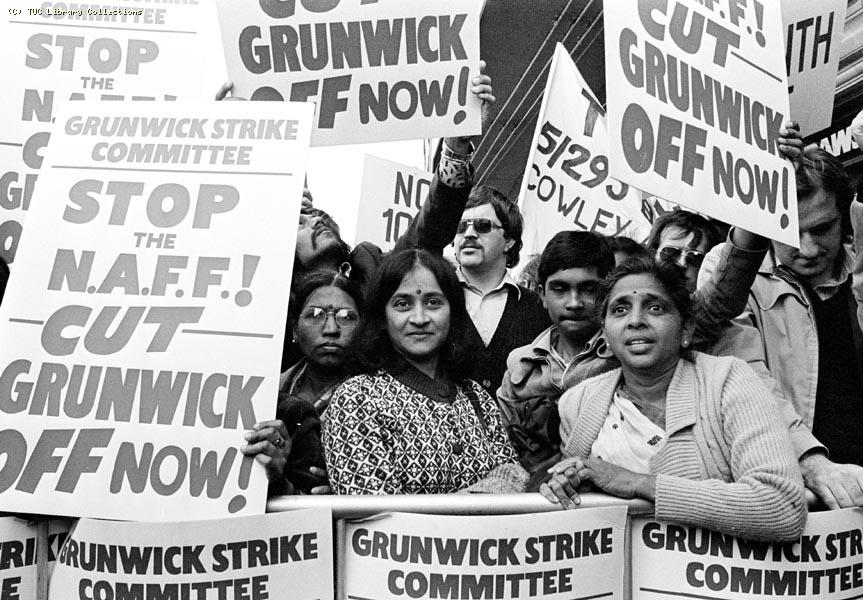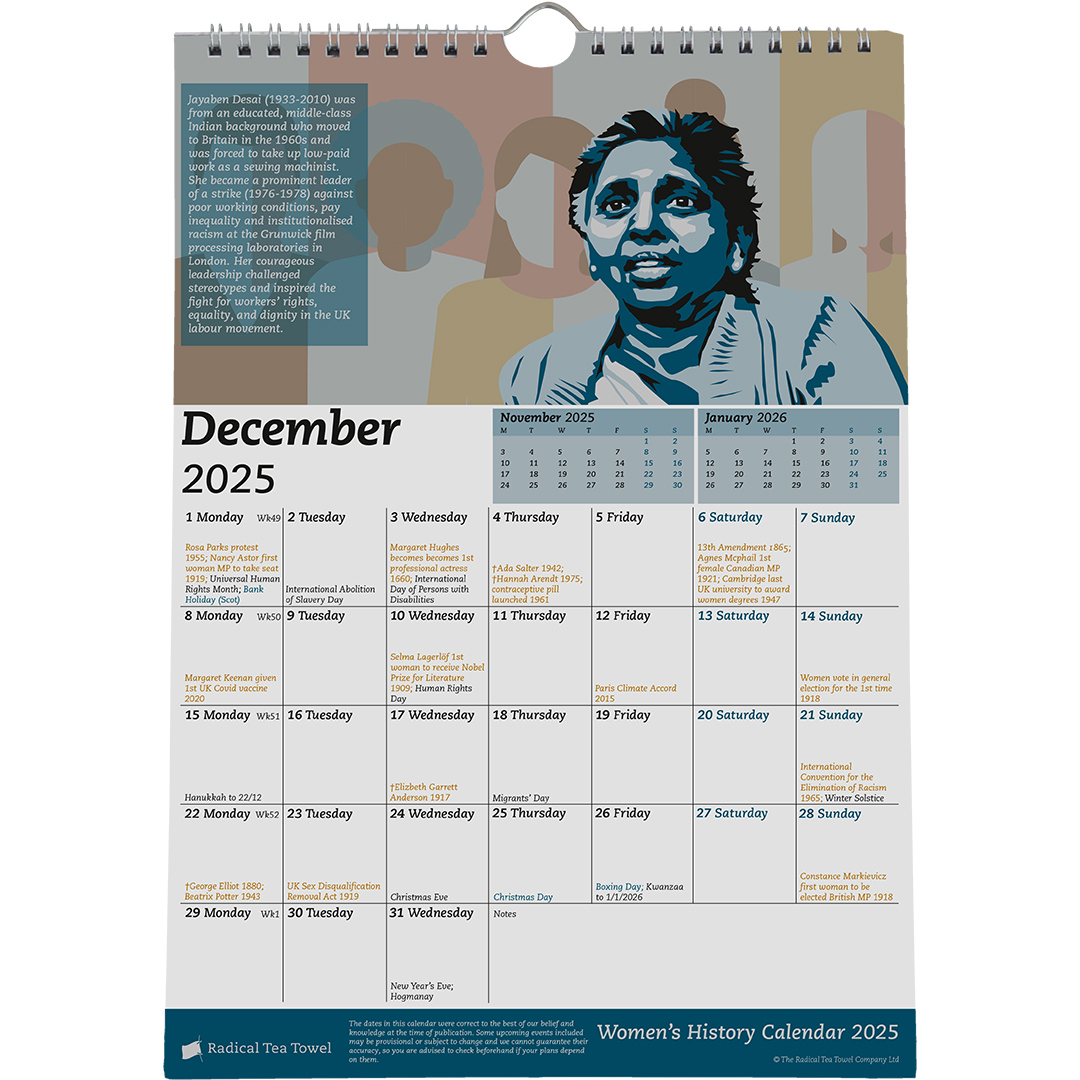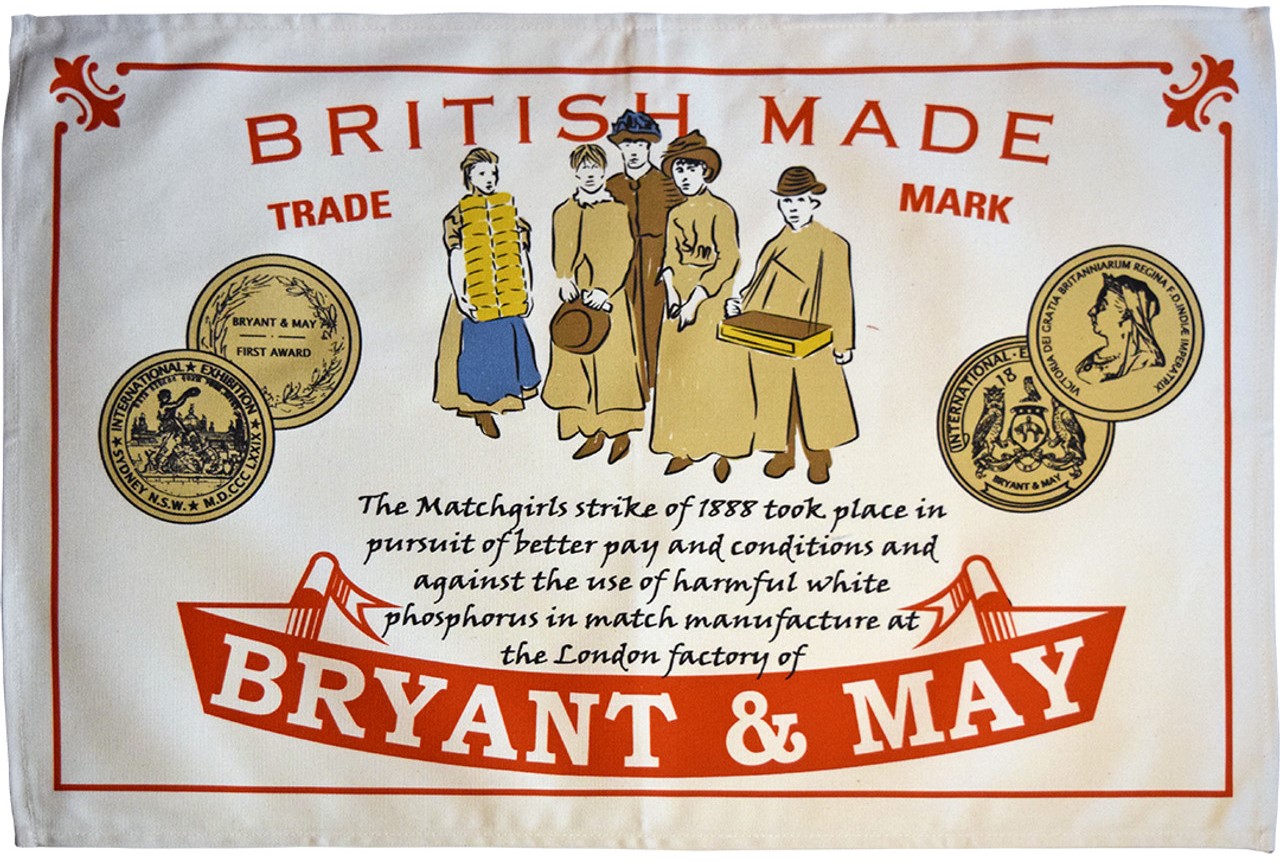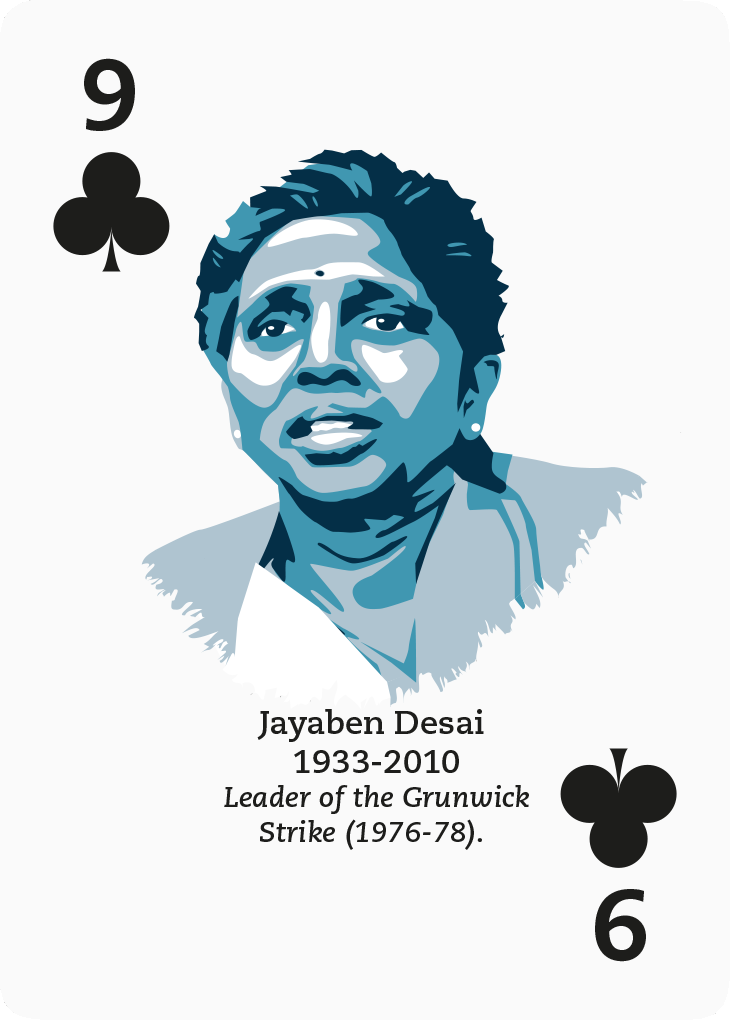Jayaben Desai's challenge for the labour movement
Posted by Pete on 1st Nov 2024
The stand taken by Jayaben Desai and others at Grunwick helped reimagine the labour movement
"The strike is not so much about pay, it is a strike about human dignity."

Jayaben Desai and others on the picket line
The British working class has always been multicultural and multinational.
And it’s often been minority and migrant workers who’ve led the way in liberation struggles, from Irish activists in the nineteenth century to Jewish socialists in the twentieth.
Feargus O’Connor, from Cork, helped found Chartism in England, and Manny Shinwell, whose parents were Jewish immigrants from Europe, led the Red Clydeside movement in Glasgow after WW1.
Jayaben Desai, a London factory worker born in Gujarat, is another figure in this powerful tradition of British radicalism.
Desai, who had been born in British-ruled India in 1933, migrated to England via Tanzania, another British colony, in the 1950s.
In the face of racism and sexism combined, Desai led the Grunwick Strike of 1976, a landmark struggle in the histories of British Asians and the wider working class in postwar England.
Jayaben Desai features proudly in this year's Women's History Calendar
See the Women's History Calendar
Jayaben Desai and her family migrated to Britain as part of the larger movement of workers from British colonies and former colonies to the metropole after WW2.
These migrations included the Windrush Generation from the British-ruled Caribbean, as well as hundreds of thousands of people from what had become independent India and Pakistan.
Desai’s generation were not the first British Indians to move to England, and earlier migrants had also included labour radicals, like the communist Shapurji Saklatvala (1874-1936), who was the first British Asian Labour MP.
But the post-WW2 migrations from South Asia were much larger, and much more working-class (even Saklatvala had been a scion of the Tata business empire).
After the Second World War, hundreds of thousands migrated from former colonies to the British Isles
See the Windrush Generation tea towel
Jayaben Desai got work in 1970s London first as a sewing machinist, then at the Grunwick Film Processing Labs in Willesden.
Grunwick was a viciously anti-union employer, and its owners hired mainly from the migrant working class, paying them far less than white workers.
80% of the workforce were British Asian, and most of these were women, like Desai.
The Grunwick owners forced low pay on its minority women workers: the average wage was £28 per week, compared to the national average of £72, and overtime was made compulsory.
When workers had resisted in the past, Grunwick met them with repression. In 1973, several workers had been sacked for joining the TGWU trade union.
But that wasn’t the end of it...
The Grunwick women's stand had echoes of the 'Matchgirls' 19th century fight for working rights
See the Matchgirls' Strike tea towel
In August 1976, Grunwick sacked a worker, Devshi Bhudia, for ‘working too slowly.'
Three other workers walked out in solidarity with Bhudia, and were sacked. Then Jayaben Desai joined them, with her son, who also worked at the plant, and they were sacked, as well.
Desai told the boss:
"What you are running here is not a factory, it is a zoo. In a zoo, there are many types of animals. Some are monkeys who dance on your fingertips, others are lions who can bite your head off. We are those lions, Mr Manager."
The fired workers didn’t leave. On 23 August 1976, they began picketing outside Grunwick.
On the advice of the Trades Union Congress (TUC), the picketers joined the Association of Professional, Executive, Clerical and Computer Staff (APEX), a relatively right-wing union, but a union nonetheless.
Attracted by the opportunity for new, collective power through trade union membership, 50 more Grunwick workers walked out to demand their right to join. Within days, there were well over 100 on the picket.
Grunwick was scared.
The bosses offered to reinstate all of the sacked strikers if they dropped the demand for union recognition, but they refused. On 2 September, Grunwick then sacked all of the striking workers.
Jayaben Desai also features in our set of International Labour Movement playing cards
See the International Labour Movement Playing Cards
Grunwick’s barbaric behaviour was met with solidarity from the rest of the labour movement.
The TUC advised all member unions to give what support they could.
On this day in 1976, the Union of Post Office Workers (UPW) implemented a total boycott of Grunwick.
In June and July of 1977, with Grunwick staggering before the heroic power of organised labour, mass pickets were formed by thousands of workers from across the country, who endured waves of police violence in order to be in solidarity with the Grunwick strike.
This was remarkable because it was the first time the wider labour movement had come out to support a strike by mostly minority workers in post-war Britain.
Where racism had previously managed to divide and rule the British working class, it couldn't any more.
The labour movement also recognised that what happened at Grunwick would define the next decade.
The tyrants who ran Grunwick were backed by the early Thatcherites in the Tory Party, who were agitating for the freedom of employers – their freedom to exploit and discriminate against workers at will – against the collective power of the working class.
And labour’s hunch was correct.
When Jayaben Desai and the Grunwick strikers were defeated in 1978, by a combo of legal chicanery by the bosses, including ignoring judicial orders to negotiate, police violence, and political interference by the Tories, it set the stage for a decade of brutal Thatcherism in Britain.
But in the longer term, the heroism of Desai and her comrades also laid the foundation for a new era of anti-racist and anti-sexist organisation within the British labour movement, giving it resilience and power for the struggles to come.




